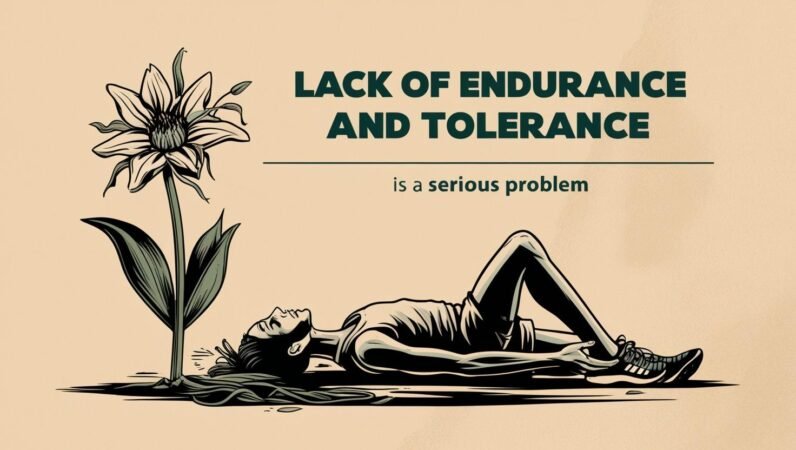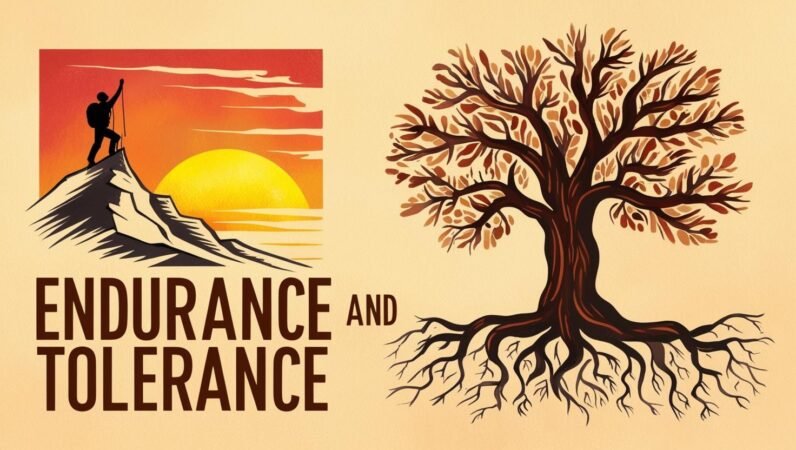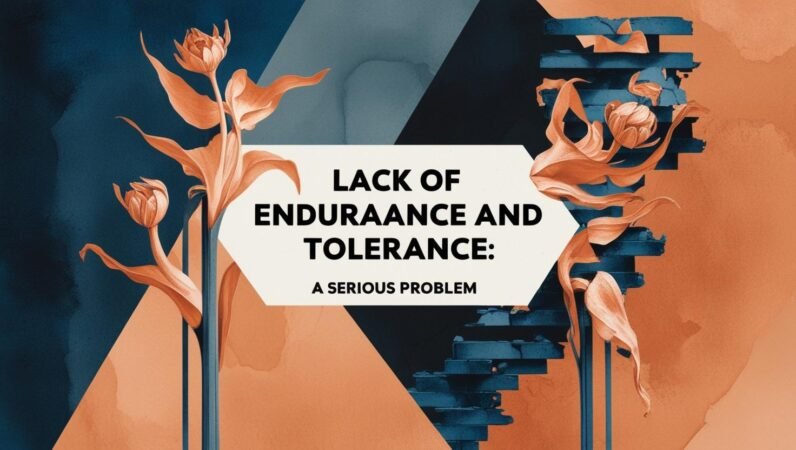Introduction
In today’s fast-paced world, the lack of endurance and tolerance has emerged as a significant social issue. People are becoming increasingly impatient, unwilling to listen to differing opinions, and quick to react negatively to disagreements. This trend is leading to societal conflicts, mental health challenges, and a breakdown in relationships. Understanding the causes, effects, and solutions to this problem is essential to fostering a more harmonious society.

The Concept of Endurance and Tolerance
Endurance and tolerance are fundamental virtues that contribute to personal growth and societal harmony. Endurance refers to the ability to withstand hardships and persevere despite challenges, while tolerance is the willingness to accept and respect differences in opinions, beliefs, and cultures. Both qualities are essential for a well-functioning society, yet they seem to be diminishing in modern times.
Historically, civilizations have thrived when people exhibited patience and a willingness to embrace diversity. Great leaders, from Mahatma Gandhi to Nelson Mandela, demonstrated the power of endurance and tolerance in overcoming conflicts and promoting peace. However, in contemporary society, these virtues are often overlooked in favor of instant gratification and divisive ideologies.

Causes of Decreasing Tolerance and Endurance
In today’s fast-paced world, people are often not taught how to manage their emotions effectively. From a young age, many individuals grow up in environments where instant gratification is encouraged, and patience is rarely practiced. As a result, when faced with challenges or opposing opinions, they react impulsively. The absence of emotional intelligence training in schools and homes leads to a lower threshold for enduring discomfort, disagreements, or failure. Without learning how to pause, reflect, and understand others, tolerance and endurance begin to fade from daily life.
Technological Advancements and Instant Gratification
The rise of technology, particularly social media, has conditioned people to expect immediate results. This has reduced patience and the ability to endure difficulties over time. The internet has made access to information instantaneous, but it has also fostered a culture where people expect immediate success, solutions, and responses. This has led to frustration and intolerance when things do not happen as quickly as desired.
Cultural and Political Polarization
The world is witnessing increasing divisions based on culture, politics, and religion. The inability to accept diverse perspectives fuels conflicts and deepens intolerance. Political ideologies have become more extreme, and instead of fostering healthy debates, people often resort to hostility and aggression against those with opposing views.
Stress and Mental Health Issues
High levels of stress due to work pressure, economic instability, and personal challenges contribute to irritability and a reduced capacity for patience and understanding. A society driven by competition and success often neglects the emotional well-being of individuals, resulting in short tempers and diminished tolerance for setbacks.
Lack of Education and Awareness
A lack of education about different cultures, ideologies, and lifestyles results in misunderstandings and a lower level of acceptance for others’ differences. When people are not exposed to diverse perspectives, they are more likely to develop prejudices and resist change.
Breakdown of Traditional Family Values
Family structures have changed significantly over the years. With busy lifestyles, reduced family bonding, and a focus on individual success, the lessons of patience and tolerance that were traditionally passed down through generations are being lost. In many cultures, elders played a crucial role in teaching endurance through their experiences, but this practice is fading in modern society.
Economic Disparities and Social Inequality
Economic instability and social inequality create frustration among different segments of society. People struggling with financial hardships often feel resentment towards those who are more privileged, leading to tensions and a lack of tolerance for differing social classes.
Media Influence and Sensationalism
The media, particularly news outlets and social media platforms, often focus on controversial and sensational topics to attract viewership. This type of reporting can amplify divisions and promote intolerance by portraying opposing views as threats rather than differences to be understood and respected.
Decline in Religious and Ethical Teachings
Many religions and ethical philosophies emphasize the importance of patience, endurance, and tolerance. However, with secularism on the rise and reduced emphasis on moral education, these teachings are not as widely practiced as they once were.
Effects of Intolerance and Impatience
The consequences of a lack of endurance and tolerance are severe and widespread:
Increased Social Conflicts
Intolerance often leads to disputes, discrimination, and even violence between individuals and communities. Hate crimes, racism, and xenophobia are direct results of an inability to accept diversity.
Decline in Relationships
The inability to listen, understand, and compromise damages personal relationships, leading to increased loneliness and broken families. Marriages and friendships suffer when individuals refuse to be patient and understanding with each other.
Negative Impact on Mental Health
A society that lacks patience and tolerance sees higher rates of anxiety, stress, and depression among individuals. The constant pressure to conform and the fear of being judged contribute to declining mental health.
Hindrance to Progress and Innovation
Innovation thrives in an environment where diverse ideas are welcomed. Intolerance stifles creativity and limits social and economic progress. History has shown that societies that embrace tolerance and endurance grow stronger and more resilient in the face of challenges.
Erosion of Democratic Values
Democracy is built on the principles of dialogue, compromise, and mutual respect. A lack of tolerance can lead to authoritarian tendencies, where opposing views are silenced instead of being debated.
Solutions to Foster Endurance and Tolerance
To address this issue, proactive steps must be taken:
Promoting Education and Awareness
Schools and institutions should teach the value of patience, endurance, and cultural understanding. Incorporating these lessons into curriculums can help shape a more tolerant generation.
Encouraging Open Dialogue
Platforms should be created for constructive discussions, allowing people to express their views without fear of judgment or hostility. Respectful debates should be encouraged to foster understanding.
Practicing Mindfulness and Stress Management
Activities like meditation, yoga, and counseling can help individuals develop patience and emotional resilience. People who manage their stress well are more likely to be tolerant and enduring.
Leading by Example
Leaders, influencers, and public figures should promote tolerance and endurance by demonstrating patience and understanding in their actions. When those in power set a positive example, society follows.
Strengthening Family and Community Bonds
Encouraging family bonding activities and community interactions can help instill values of patience and acceptance from a young age.
Regulating Social Media and News Sensationalism
Encouraging responsible journalism and reducing the spread of fake news can help prevent misinformation that fuels intolerance.
Promoting Interfaith and Intercultural Programs
Encouraging interaction among different religious and cultural groups can help break stereotypes and build a more accepting society.
Conclusion
The lack of endurance and tolerance is a growing issue that negatively impacts individuals and society as a whole. Addressing this problem requires a collective effort to promote patience, understanding, and acceptance of diverse perspectives. By fostering a culture of tolerance, we can build a more peaceful and progressive world for future generations. It is imperative that individuals, families, educational institutions, and governments work together to reinforce the importance of endurance and tolerance in everyday life. Only through these efforts can we hope to create a more compassionate and united society.
_____________________
YOU MAY ALSO LIKE:


